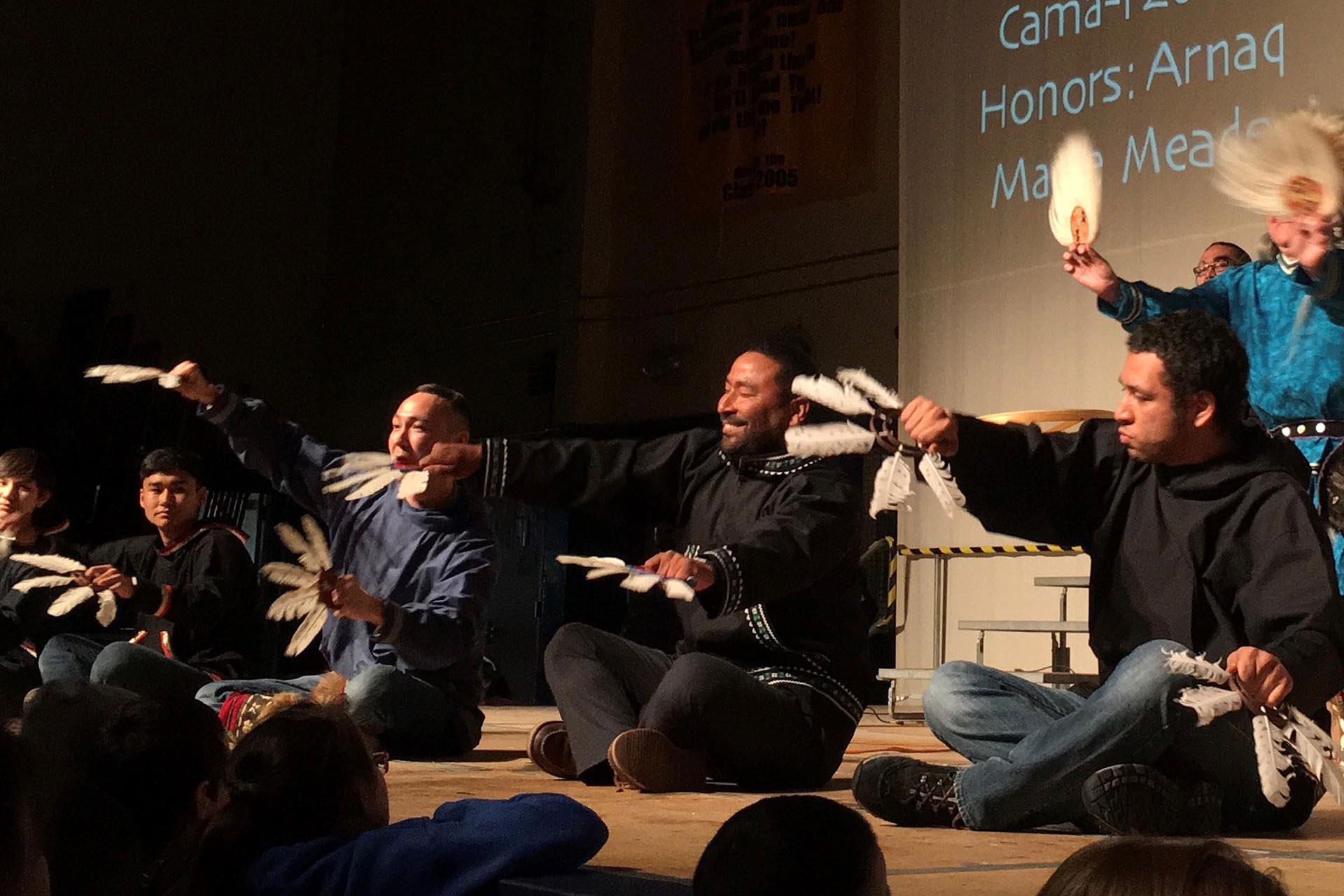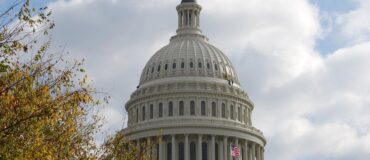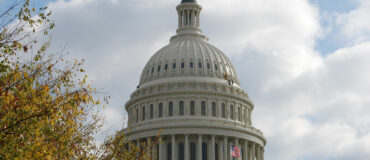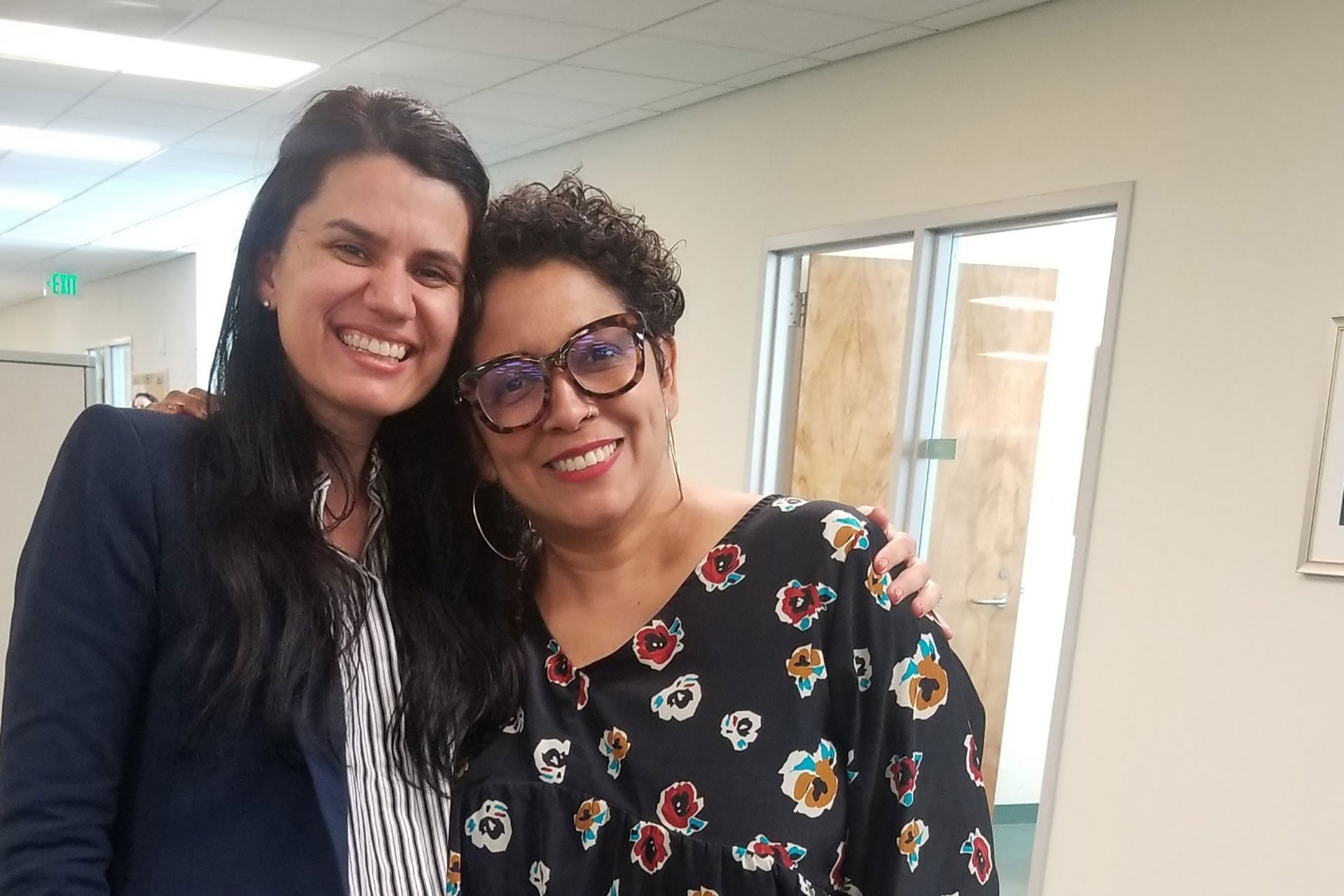Legislative Update: The Dance Community During the New Administration and the 117th Congress
Legislative Update: The Dance Community During the New Administration and the 117th Congress
By Tony Shivers

Courtesy Tony Shivers
The U.S. Congress is scheduled to commence its 117th session, a two-year session, on January 3, 2021. It is scheduled to count electoral votes from each state on January 6, 2021, and officially declare former Vice President Joe Biden and current U.S. Senator Kamala Harris the winners of the November 2020 election. President-Elect Joe Biden will be inaugurated as the 46th President on January 20, 2021. Vice President-Elect Kamala Harris will make U.S. history as the first female, first African-American, and first Asian-American Vice President.
Until the January 20 inauguration, the Biden-Harris transition team will be busy working with the current Presidential administration to establish a smooth transition between administrations. The Biden-Harris transition team appointed federal agency review teams, including an arts and humanities team, to listen to stakeholders and to provide information to the new administration concerning short-term and long-term issue priorities for the arts and culture sector.
The President- and Vice President-Elect have indicated their top priorities for their administration: providing more pandemic relief, improving the economy, achieving racial justice and equity, achieving affordable and quality health care, providing a world-class education for all students, and combatting climate change. The Democratic Party included support for the arts and culture in its 2020 policy platform, specifically supporting funding for the National Endowment for the Arts, the National Endowment for the Humanities, and for art and music education in our nation’s public-school system.
The current top four U.S. Congressional leaders will remain the same for the 117th Congress. Nancy Pelosi (Calif.) will remain Speaker of the U.S. House of Representatives and Kevin McCarthy (Calif.) will continue as minority leader. Mitch McConnell (Ky.) will remain Republican leader in the U.S. Senate and Charles Schumer (N.Y.) will remain the Senate’s Democratic leader. Party control of the U.S. Senate will be determined by two runoff races on January 5, 2021, in Georgia.
Securing Economic Relief for Creatives
Dance/USA will continue to work unilaterally and with its partners across the arts and nonprofit sectors to engage the U.S. Congress during its next session focusing on various issues of interest to the dance community, as well as individual dance artists and dance professionals. Dance/USA’s top priority will be to secure further relief for dance companies, dance organizations, individual dance artists and professionals, as well as other creative workers as they continue to deal with pandemic closures.
Most of the pandemic relief programs established under the $2.2 trillion Coronavirus Aid, Relief, and Economic Security (CARES) Act, signed into law in March 2020, expire at the end of 2020, including federal unemployment relief programs such as the Pandemic Unemployment Assistance (PUA) Program, which provides unemployment relief to millions of creative and “gig” workers. If Congress does not extend the PUA program beyond December 2020, millions of creative and gig workers will continue to face significant challenges. Additionally, Dance/USA continues to urge Congress provide adequate funding to all federal arts and cultural-related agencies, programs, and initiatives, including the National Endowment for the Arts, National Endowment for the Humanities, and the Institute for Museum and Library Services. States, state/regional arts councils, and local arts communities have benefited from grants from these specific federal agencies over the years. Dance companies, dance organizations, and individual dance artists and professionals have been able to provide high-quality programs and initiatives to our nation’s communities, families, and students.
Arts as an Economic Engine
Beyond the immediate priority to secure more pandemic relief, Dance/USA will be focused on ensuring that the creative economy and creative workers are included in any national economic recovery effort by the new administration and the 117th Congress.
Years of economic data show that the arts and cultural sector is an economic engine at national, state, and local levels. According to the Brookings Institution in an August 2020 analysis, Lost Art: Measuring COVID-19’s Devastating Impact on America’s Creative Economy, economic losses due to the pandemic number 2.7 million jobs and more than $150 billion in sales of goods and services for creative industries nationwide. The fine and performing arts industries are and will be hit the hardest, suffering estimated losses of almost 1.4 million jobs and $42.5 billion in sales. Moreover, analysis indicates that, taken together, arts, culture, and creativity are one of the three key sectors that drive regional economies. Any long-term damage to the sector will drastically undercut our nation’s culture, well-being, and quality of life. Additionally, the Bureau of Economic Analysis, under the U.S. Department of Commerce, released a March 2020 report that concludes the arts and cultural sector contributes $877.8 billion to the nation’s gross domestic product. It will be difficult for the new administration and the U.S. Congress to improve the economy beyond the pandemic without supporting the arts and cultural sector that ensures creative workers get back to work. We support the improvement of creative workforce readiness and improving access to existing federal workforce development opportunities for creative businesses and creative workers.
Charitable Contribution Incentives
Another issue that will be considered during the 117th Congress is providing incentives for charitable contributions. Dance non-profit organizations and the nonprofit sector rely on charitable gifts from donors across the economic spectrum to provide programs, events, and initiatives that positively impact their local communities. Dance/USA supports the enactment of a universal charitable deduction available to all taxpayers regardless of whether they itemize their returns. Dance/USA also supports Legacy IRA Act legislation that would expand the IRA charitable rollover to allow seniors aged 65 and older to make tax-free distributions to charities through vehicles such as charitable remainder trusts and charitable gift annuities.
Dance/USA will be working with the new administration and the 117th Congress on various other issues of interest to the dance community, including improving the visa process for foreign guest artists and increasing access to arts education for our nation’s students.
A finalized rule by the U.S. Department of Homeland Security would increase filing fees for O and P artist visa applications and make other policy changes that create additional burdens for petitioners. The U.S. District Court for the Northern District of California issued a nationwide preliminary injunction that prevents U.S. Citizenship and Immigration Services (USCIS) from implementing those filing fee increases for O and P artist visas applications.
Years of evidence show that access to arts education increases students’ academic success, increases students’ attendance rates, increases students’ engagement in their education, including family engagement. Dance/USA will be working to increase funding for Student Support & Academic Enrichment Grants under the Every Student Succeeds Act (ESSA), the main federal K-12 education law, and ensure access to high-quality professional development for arts education teachers.
It is equally important for dance companies, dance organizations, individual artists and dance professionals, creative workers, and arts supporters to engage their elected officials at all levels to urge support for arts and culture as our nation moves beyond the pandemic. Every voice is important. When elected officials hear real-world stories about successes, challenges, and specific needs of arts and culture workers that allows them to best help their constituents in their states and communities. Further information about how you can effectively advocate with your local, state and national legislators is available on the Dance/USA website.
Tony Shivers represents the interests of Dance/USA and OPERA America before Congress, the White House, and relevant federal agencies and works on a range of issues, including budget/appropriations, arts education, tax policy, cultural exchanges, foreign visas, and raising the overall awareness of the importance of arts to the global economy. Tony brings years of experience as a government affairs professional working on various education and health care issues at the federal, state, and local levels of government. One of Tony’s personal passions is ensuring that students are prepared for the global economy whatever path they may choose; he believes that arts education is critical toward their success. Tony previously led government affairs operations for various national nonprofit organizations in the Washington, D.C., area, including the National Association of State Boards of Education and National Association of Federally Impacted Schools. Tony also held leadership positions at United Way Worldwide and the Council for a Strong America organizations based in the Washington, D.C., area. Tony is passionate about giving back to the community through volunteerism and is active with the PTA at all levels as well as other nonprofit organizations. Tony received his B.S. in political science from the Pennsylvania State University and completed his law studies at Purdue University Global Concord School of Law.
____
We accept submissions on topics relevant to the field: advocacy, artistic issues, arts policy, community building, development, employment, engagement, touring, and other topics that deal with the business of dance. We cannot publish criticism, single-company season announcements, and single-company or single artist profiles. Additionally, we welcome feedback on articles. If you have a topic that you would like to see addressed or feedback, please contact communications@danceusa.org.
Disclaimer: Opinions expressed in guest posts do not necessarily represent the viewpoints of Dance/USA.






